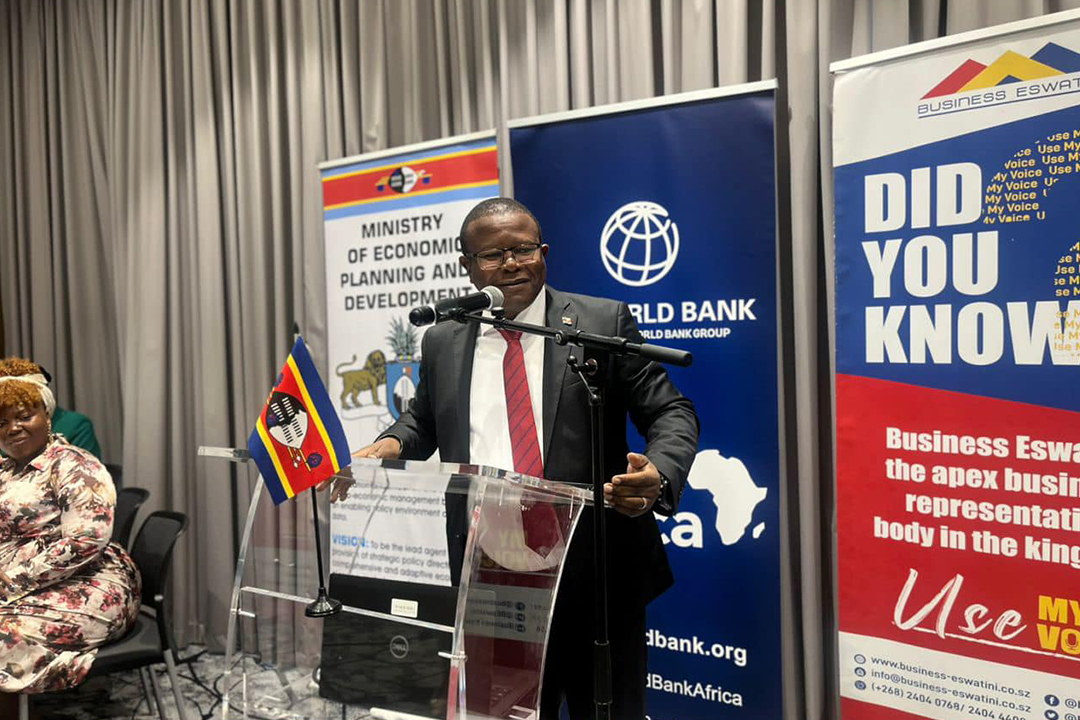By Banele Magongo
MBABANE – Minister of Commerce, Industry and Trade Manqoba Khumalo believes that the country’s economic growth should be led by the private sector.
Minister Khumalo believes that if the private sector can lead the country’s economic growth, many economic problems facing the country would be addressed. The Minister said this yesterday (Thursday, July 4, 2024) at Hilton Garden Inn, Mbabane.
He said this during the World Bank–ICF Development Dialogue. Speaking at the dialogue, Khumalo said a strong private sector the led the country’s economic growth could avail many job opportunities and could also remove the burden of having to provide services from the public sector.
The minister said the private sector led growth included project initiatives that were made to provide job opportunities, while improving the country’s production. “As contained in the National Development Plan (NDP 2023/25-2027/28), Eswatini has a number of major project initiatives that are planned and some are already commenced. These include, but are not limited to, the Mkhondvo Dam construction and the establishment of an Industrial Park to cover the value chain of cotton to garment production, local production of some intermediate raw materials like citric acid, beef and dairy expansion and establishment of a land bank to further facilitate accessibility of land to potential investors,” he said.
He stated that the International Finance Corporation (IFC) completed a Country Private Sector Diagnosis (CPSD) for Eswatini in 2022. The study identified four strategic sectors for private sector growth: Agri-business, which includes the Sugar industry (accounting for 5% of GDP and over 20,000 jobs), Forestry (1.3% of GDP), Beef (2.9% GDP), and Textile and Apparel (10.5% of exports).
According to Khumalo, Eswatini’s economic growth has faced hurdles in recent years due to a shift from private investment-driven higher growth to a government spending-driven lower growth model, exacerbated by weak investment in productive sectors and an expanding, younger labour force that outstripped job opportunities, resulting in a large informal sector. These issues, identified during the Sibaya People’s Parliament, have made the current public sector-driven model unsustainable.
He also requested technical assistance from the World Bank to assist Eswatini’s government in implementing reforms, such as the deeds registry, collateral registry, and one-stop-shop project, that will bolster the country’s efforts to create a more conducive business environment. This assistance, he argued, would be essential in improving Eswatini’s ranking in the upcoming 2025 Business Ready Index assessment.





